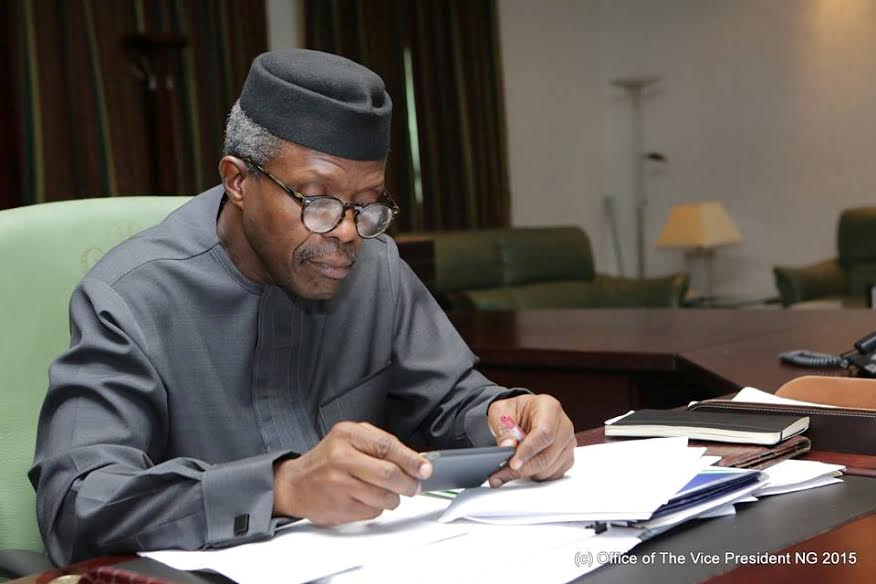- FG May Adopt Selective Minimum Wage Increase
Vice President Yemi Osinbajo says the Federal Government may consider increasing workers’ remuneration package, especially bonuses of certain government agencies, instead of increasing wages across board.
According to a transcript made available to journalists in Abuja on Tuesday by his Senior Special Assistant on Media and Publicity, Mr. Laolu Akande, the Vice-President spoke during a session titled, ‘Conversation with the Vice-President’ at the 2017 Nigerian Bar Association National Conference held in Lagos on Monday.
Osinbajo said though the issue of better pay for workers was a good suggestion, the government was “in a bind of sorts.”
He said at the moment, the government was spending 70 per cent of its revenues on remuneration and overheads, leaving less than 30 per cent for capital expenditure.
He said while it was correct that the country needed a more efficient civil service that would be paid more, there was also the need to increase revenues.
Osinbajo said, “Sometimes, it is a chicken and egg situation because in order to increase revenues, we need to increase remuneration.
“I think that what we are probably going to end up doing is what we have done with some of the parastatals; in other words, identifying certain government services that must be remunerated differently in order to increase efficiency. One of the revenue generating agencies, for instance, is the Federal Inland Revenue Service.
“Improving remuneration, especially bonuses, would do a lot of good. That we saw happen in Lagos with the Lagos Inland Revenue Service, where because there were bonuses, there was improvement in revenue and reform. People were able to do better, even in our judicial system. Because we paid better; we remunerated better, people were able to improve.”
The Vice-President said the commitment of the present administration was to leave Nigeria with all the resources that could be brought to the table.
He said it was also the desire of the administration to leave the country with transparency and efficiency in all aspects.
Meanwhile, Osinbajo has called on the management of ECOWAS Investment Bank to increase agricultural funding in order to reduce the level of poverty and unemployment in the sub region.
He said this on Tuesday in Abuja at the 15th Annual General Meeting of the board of governors of the bank.
He said the need to boost funding to the agricultural sector became imperative as it held the key to unlocking the growth and prosperity of the continent.
He said the current situation where economies of various countries were facing falling government revenues on the account of commodity price slumps, declining economic growth and the challenge of creating jobs necessitated the need for the bank to step up its intervention in member countries.
The VP said the economic challenges had put greater pressure on governments of the member states to urgently diversify their economies.
He said, “The population of the sub region is a youthful one, 70 per cent of our population is under 35 (years) with all the implications for providing education and livelihood.
“So, the challenges of today call for greater creativity, and foresight in supporting and making investments in our member countries.
“So one of the crucial issues today, which would decisively impact the future is how the bank can make a difference in the lives of our young people.”
Osinbajo acknowledged the support of the bank, but noted that there was a need to galvanise more resources to enable it to effectively achieve its mandate.
The President of the Bank, Bashir Ifo, in his speech at the event, said during the 2016 financial year, 11 projects amounting to $121.5m were appraised.

 Forex2 weeks ago
Forex2 weeks ago


 Naira1 week ago
Naira1 week ago
 Naira4 weeks ago
Naira4 weeks ago
 Company News4 weeks ago
Company News4 weeks ago
 Billionaire Watch1 week ago
Billionaire Watch1 week ago




 Naira2 weeks ago
Naira2 weeks ago




 Naira3 weeks ago
Naira3 weeks ago




 Naira1 week ago
Naira1 week ago






















